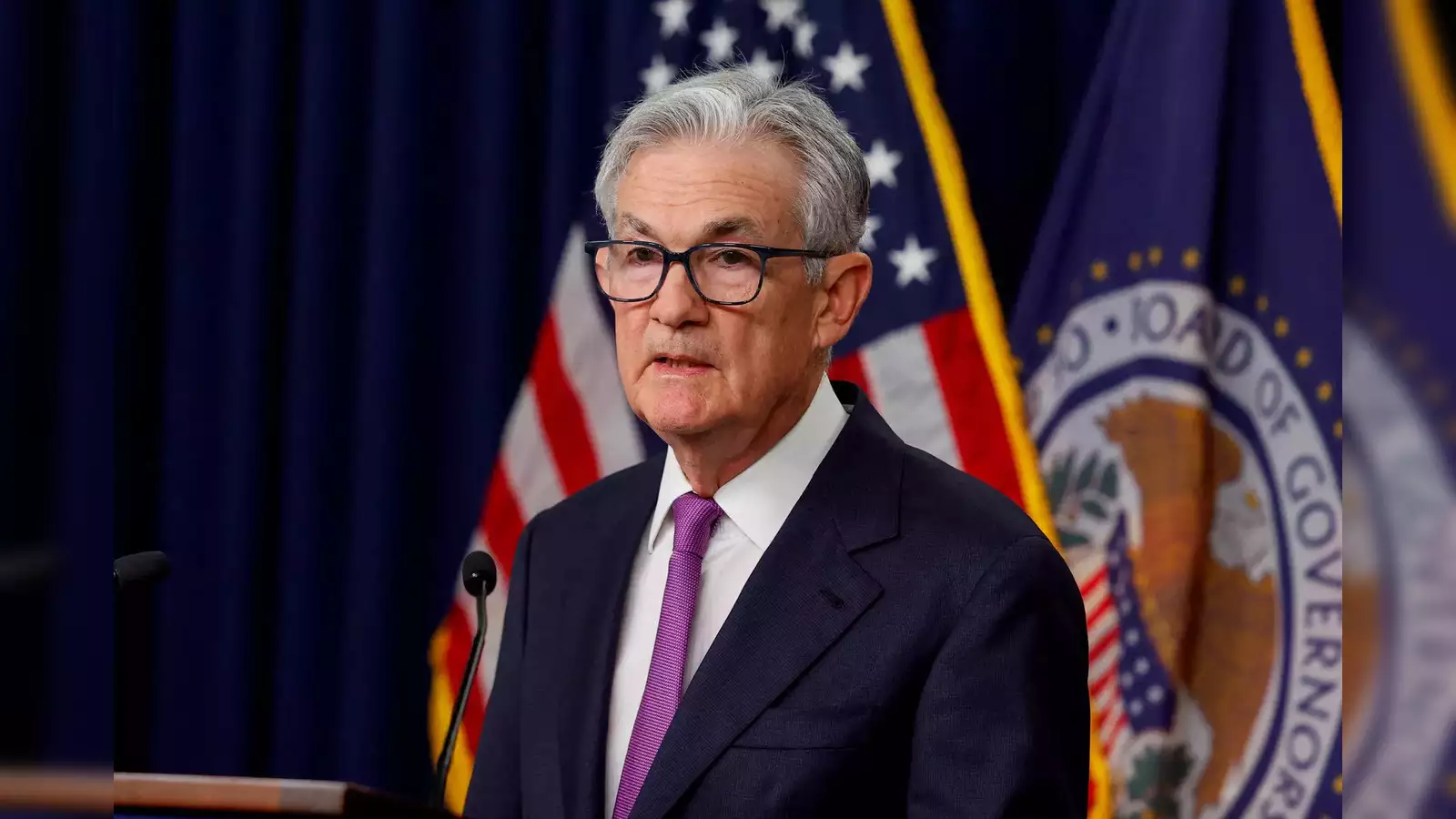
Jerome Powell, the Chair of the U.S. Federal Reserve, has garnered significant attention due to his critical role during a tumultuous economic period. Though he has been in office for several years, recent scrutiny stems from his efforts to tackle pressing economic challenges. Powell’s actions, including his recent suggestion that the Federal Reserve may cut its key interest rate this year, have sparked both praise and criticism, making him a pivotal figure in economic discussions. But who exactly is Jerome Powell, and does he truly hold the economic health of the United States in his hands?
Early Life and Education
Born on February 4, 1953, in Washington, D.C., Jerome Powell has carved out an illustrious career, culminating in his appointment as the 16th Chair of the Federal Reserve in 2018. His journey to financial leadership began at Princeton University, where he earned a degree in politics. He continued his education at Georgetown University Law Center, obtaining a Juris Doctor degree in 1984.
Professional Odyssey
Powell’s professional journey in finance began shortly after his education, leading him to various esteemed financial institutions. Notably, he served as a partner at the Carlyle Group from 1997 to 2005. His career also includes a brief stint as Under Secretary of the Treasury for Domestic Finance under President George H.W. Bush in 1992. After leaving the Carlyle Group in 2005, Powell founded Severn Capital Partners, a private investment firm. He also served as a visiting scholar at the Bipartisan Policy Center from 2010 to 2012.
Rise to Federal Reserve Chair
In 2012, President Barack Obama nominated Powell to serve on the Federal Reserve Board of Governors. His ascent continued, and in 2018, President Donald Trump appointed him as Chair of the Federal Reserve. With a wealth of experience and proven leadership, Powell emerged as a compelling choice to helm the Federal Reserve, the apex institution tasked with safeguarding the nation’s economic stability and prosperity.
Responsibilities and Impact
As Chair of the Federal Reserve, Powell’s responsibilities extend far beyond the boardroom. His decisions and actions have profound implications for the economic health of the nation and resonate globally. At the heart of Powell’s role lies the stewardship of U.S. monetary policy. He oversees the formulation and execution of policies aimed at promoting maximum employment and maintaining price stability. Powell and the Federal Open Market Committee (FOMC), of which he is Chair, wield a powerful tool in the form of interest rates. Adjustments to the federal funds rate influence borrowing costs, economic activity, and inflation dynamics.
Balancing Act
One of Powell’s primary duties is to balance stimulating economic growth while guarding against inflation. By raising or lowering interest rates, he aims to fine-tune economic expansion, striving for sustainable growth while preventing runaway inflation. His decisions shape employment levels, business investment, and consumer spending—the lifeblood of the economy.
Crisis Management
Powell also plays a crucial role during times of crisis. Whether dealing with the fallout from a global pandemic, financial market disruptions, or geopolitical tensions, his leadership is instrumental in guiding the Fed’s response. He acts decisively to stabilize financial markets, provide liquidity to troubled sectors, and instill confidence in the economy’s resilience.
Global Influence
Beyond domestic policy, Powell’s actions have global repercussions. As the steward of the world’s reserve currency, his decisions on interest rates and monetary policy affect international financial markets, exchange rates, and capital flows. Central banks and policymakers worldwide closely monitor his pronouncements, adjusting their strategies accordingly.
Regulatory Oversight
Powell’s role extends to regulatory oversight and financial stability. Following the 2008 financial crisis, the Federal Reserve assumed a broader mandate to safeguard financial system stability. As Chair, Powell leads efforts to monitor and address risks within the banking sector, oversee regulatory reforms, and enhance the financial system’s resilience to shocks and disruptions.
Communication and Public Perception
In addition to his formal duties, Powell serves as a prominent spokesperson for the Federal Reserve. He communicates policies, objectives, and outlooks to the public, financial markets, and policymakers. His speeches, congressional testimonies, and press conferences are scrutinized for insights into the Fed’s thinking, providing valuable guidance to investors, businesses, and households.
Market Reactions
Powell’s decisions and pronouncements evoke diverse reactions, reflecting varied stakeholder interests. Financial markets, including cryptocurrencies, react swiftly to hints of policy changes or shifts in the Fed’s outlook. Stock prices, bond yields, and exchange rates can fluctuate significantly in response to his remarks, underscoring the influence of his role on investor sentiment and market dynamics.
In March, Powell hinted at potential implications for cryptocurrency, suggesting a reduction in interest rates might occur if inflation indicators cooperate. This optimism was reflected in market movements, with gold surging to new peaks and Bitcoin hitting record highs, driven by anticipation of U.S. monetary easing.
Ongoing Debate and Criticism
Powell’s decisions invite scrutiny and debate from economists, policymakers, and the public. Opinions vary on the efficacy of the Fed’s policies, the appropriate stance of monetary policy, and the potential risks involved. Critics may question the Fed’s independence, challenge its decisions, or advocate alternative approaches to economic challenges.
Commitment to the Fed's Mandate
Despite the complexities and uncertainties of his role, Jerome Powell remains committed to fulfilling the Federal Reserve’s mandate and advancing the well-being of the American people. He navigates the ever-changing economic landscape with pragmatism, expertise, and foresight, seeking to steer the economy toward prosperity and stability.
Conclusion
As Chair of the U.S. Federal Reserve, Jerome Powell occupies a position of immense responsibility and influence. His decisions shape the trajectory of growth, employment, inflation, and financial stability. With the weight of the nation’s economic health resting on his shoulders, Powell continues to navigate the complexities of monetary policy with diligence and determination, reaffirming his place as a pillar of leadership and a guardian of the nation’s economic well-being.



